Winners of Open Architecture Challenge: [UN]RESTRICTED ACCESS
By Bustler Editors|
Thursday, Aug 9, 2012
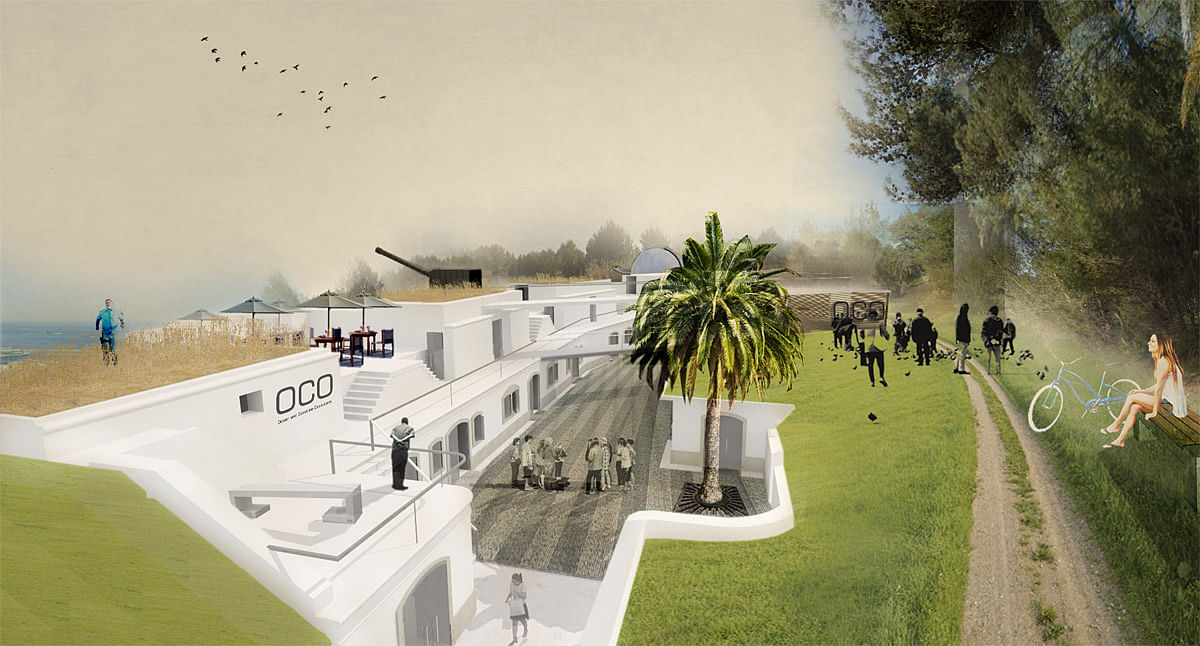
Related
Architecture for Humanity has just recently announced the winners of its latest Open Architecture Challenge, [UN]RESTRICTED ACCESS. The prestigious, bi-annual humanitarian design competition focused on re-imagining former military sites.
A Portuguese proposal to reassign the Trafaria defense batteries outside Lisbon, the "OCO" or Ocean Coastline Observatory has been declared the Open Architecture Challenge winner, placed first in a field of 508 teams from around the world. Designed by the Lisbon Architecture Collective, OCO re-interprets coastline protection by assigning the cannon-laden battery to defend against threats of environmental abuse. "More than an economic asset," the design team relates, "the ocean...defines our identity." The design proposes reusing the military buildings to supervise the sustainable preservation of the coast, and help preserve Portuguese heritage.
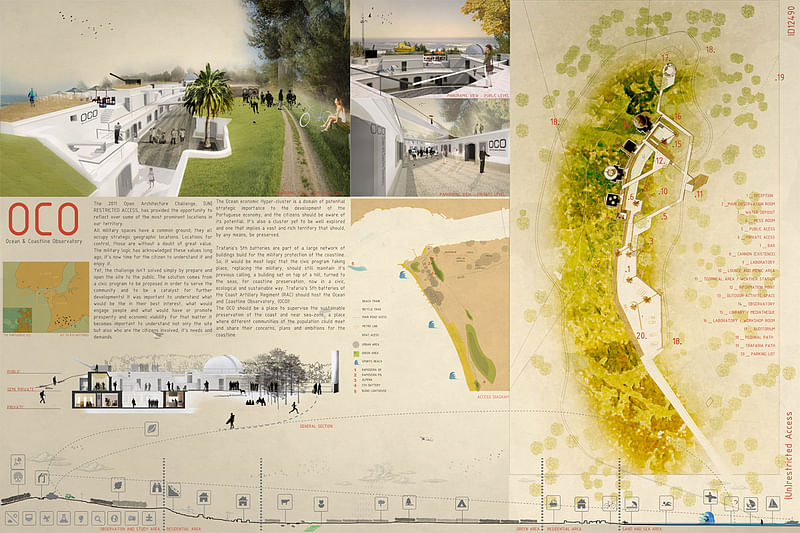
For every Open Architecture Challenge, the Founders' Award goes to the entry that most reflects the mission of Architecture for Humanity. In 2012, the honor goes to a Ugandan proposal designed by Andrew Amara to augment a former army outpost and IDP (Internally Displaced Persons) camp for use as a cultural center and marketplace for those who have become permanent residents there.
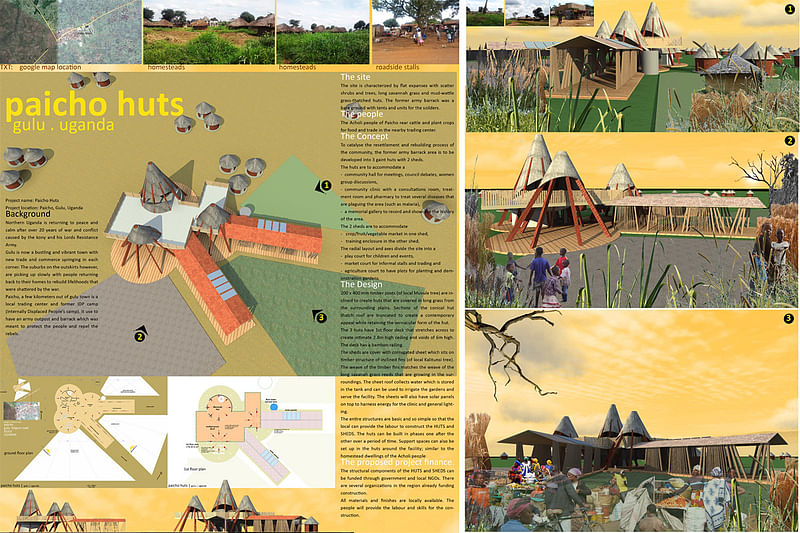
The Challenge asked architects and designers to partner with community groups around the world and develop innovative solutions to re-envision closed, abandoned and decommissioned military sites. In this way designers worked with communities surrounding these former places of conflict to transform oftentimes hostile locations into civic spaces built for the public good.
Each design submission resonated with hope, admiration, and reverence for the prospect of redeveloping ex-military bases. A total of 508 teams from 71 countries registered to enter the Challenge. Entries were evaluated by an interdisciplinary jury of 33 professionals for suitability with five criteria: Community impact; Contextual appropriateness; Ecological footprint; Economic viability; and Design quality. Jury members included the Renzo Piano Building Workshop, Bahram Shirdel, Patricia Arquette, and Tom Kundig.
Other finalists targeted hot topic issues regarding environmental impact, political reaction, small-scale intervention, and economic development, for sites as varied as Old City Hebron, (Palestinian Territory), defunct World War II infrastructure in the Netherlands, seaside bunkers in New Zealand, "Peacewalls" in Northern Ireland, and Muammar Gaddafi's former palace grounds in Tripoli, Libya. Teams outlined scenarios for public community outreach which, in some cases, have already instigated larger municipal discussions of feasibility.
Here are the twelve finalists arranged by jury-determined categories.
Environmental Impact
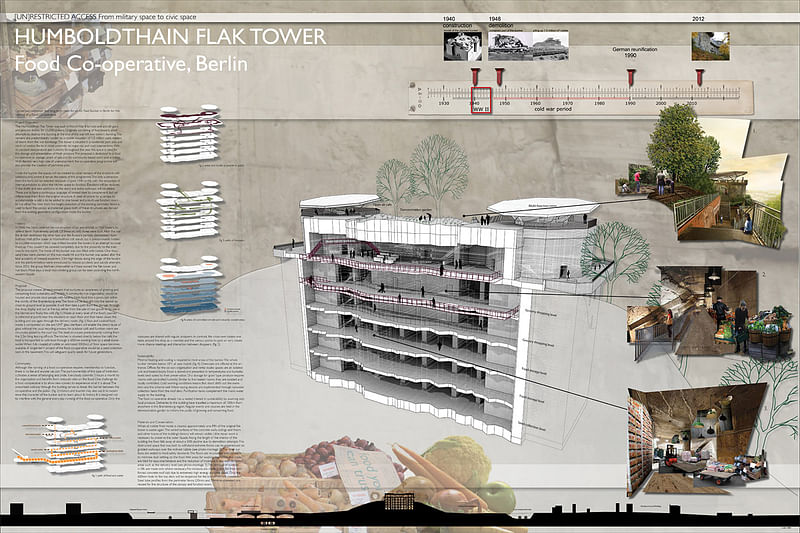
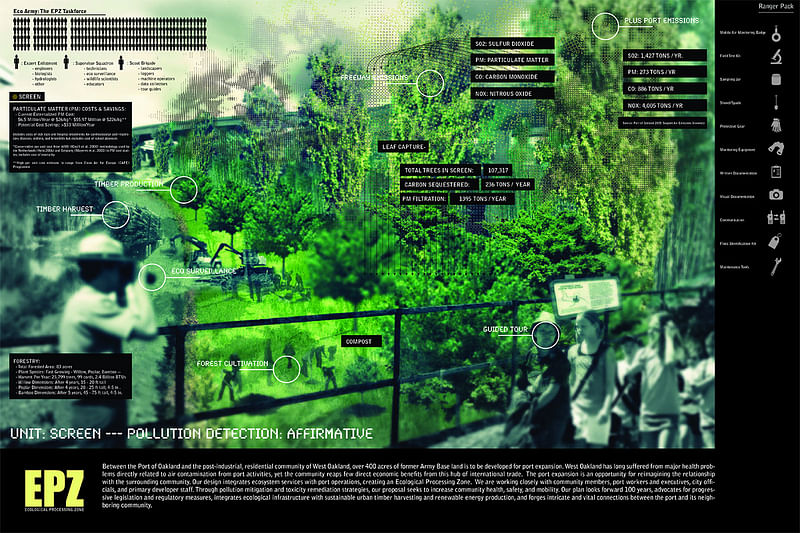
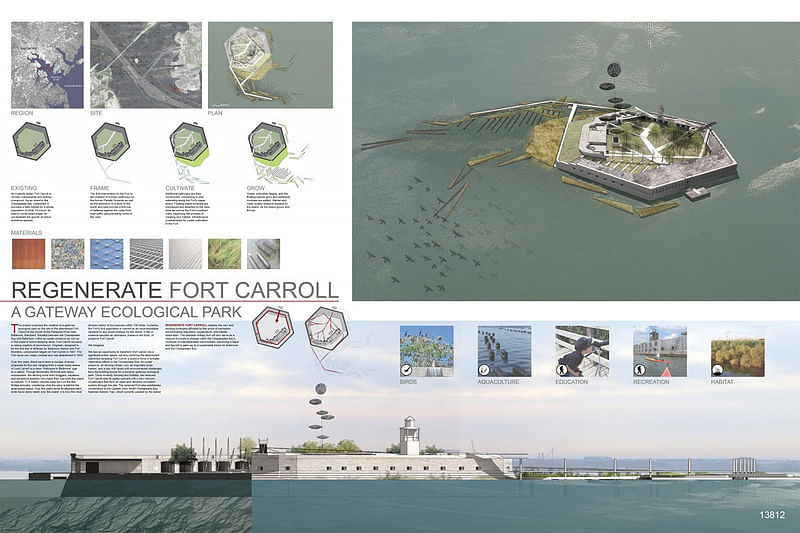
Political Response
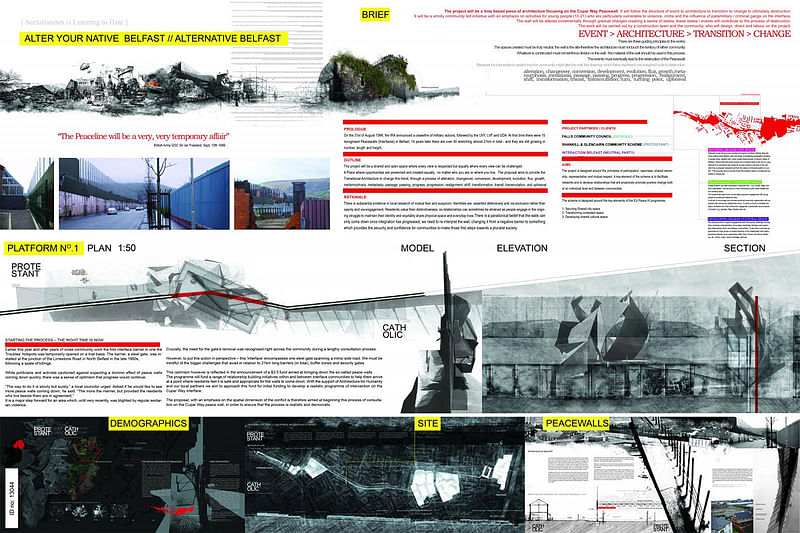
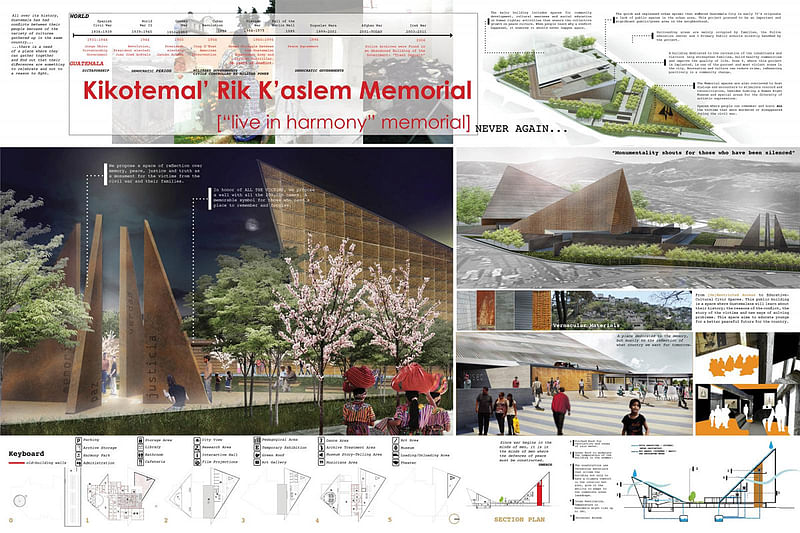
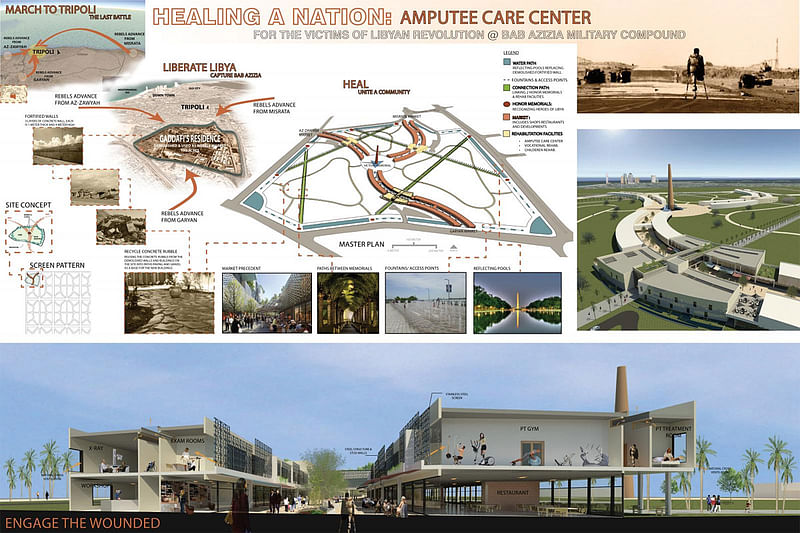
Economic Development
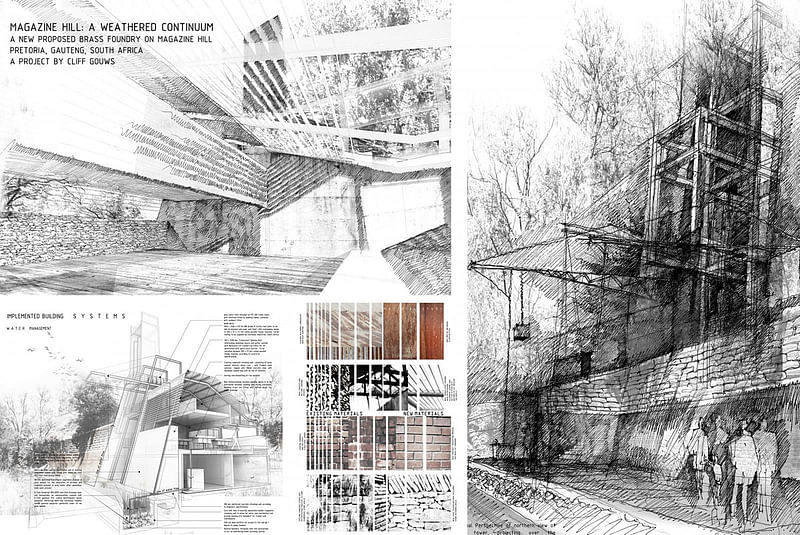
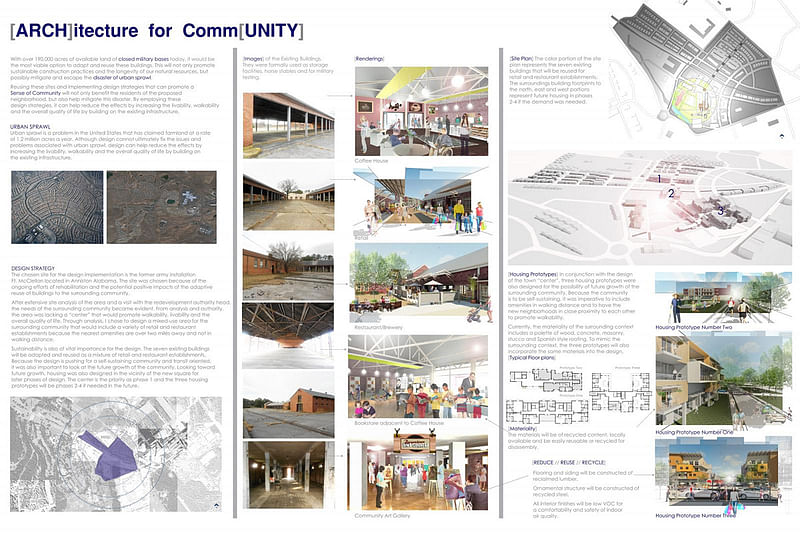
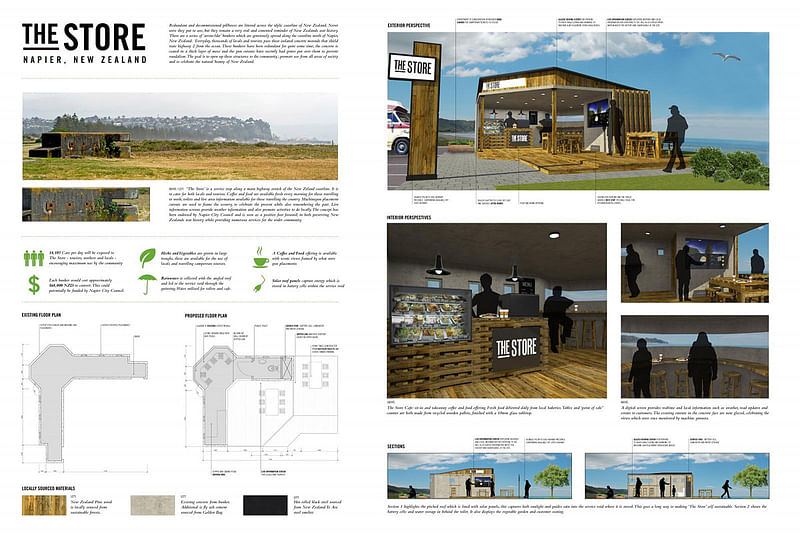
Small-scale Intervention
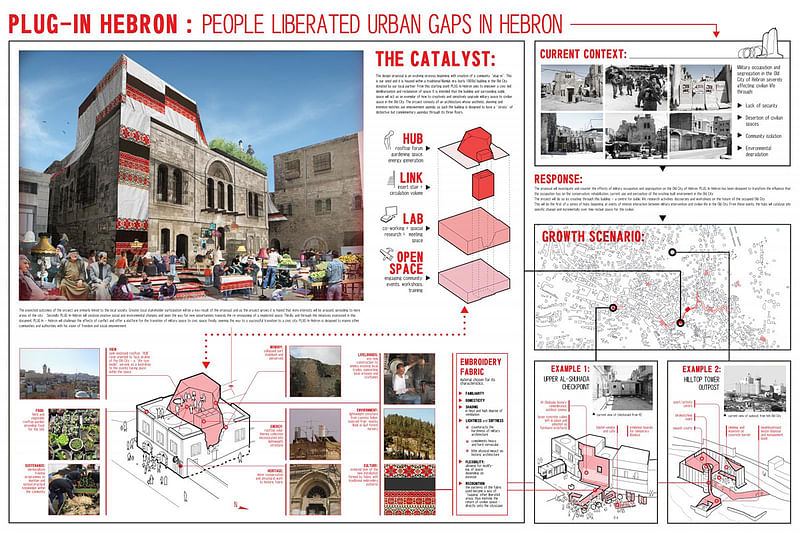
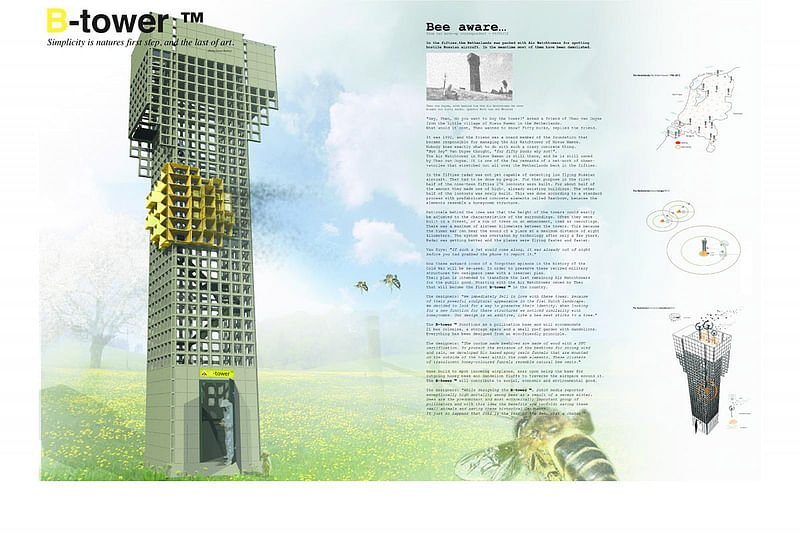
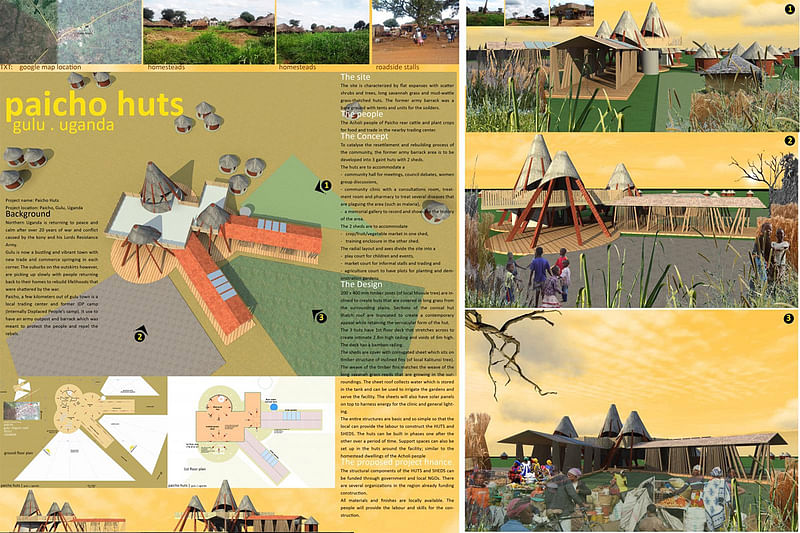
Support for the Challenge to date comes from the National Endowment for the Arts, Autodesk (who has donated over $12,000 worth of software toward winning prizes), and Hewlett Packard Italy (donating materials for 2012 Venice Biennale exhibition).
The next stage of the Challenge is the traveling exhibition, whose first stop will be the Venice Biennale. Launching August 27th in the Palazzo Bembo, [UN]RESTRICTED ACCESS joins the palace's theme, "Traces of Centuries & Future Steps." The exhibition will then visit various locations in Europe throughout the Fall. Architecture for Humanity hopes to feature the exhibition in every city hosting a decommissioned bases targeted by a finalist, and seeks continued support for the exhibition and an accompanying photography series of these locations as they exist today.

Share
0 Comments
Comment as :